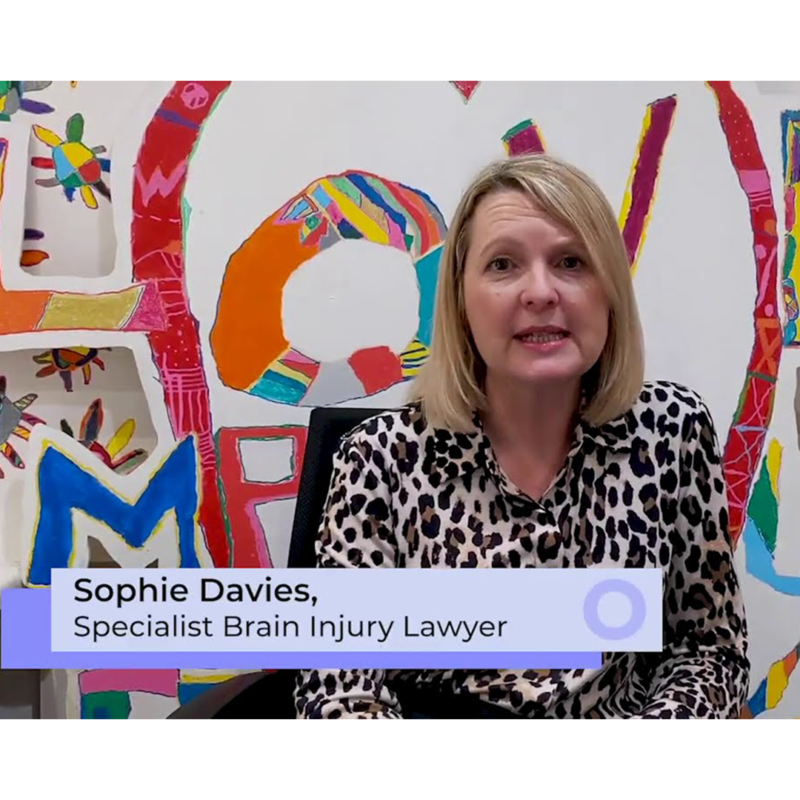
Providing support never stops. In fact, throughout the current pandemic our teams have been working harder than ever to ensure our members and families get the help they need most. Our Casework team in particular have been incredibly busy, supporting people through benefits reassessments, and wider legal and finance issues. This also includes questions around housing – and we’re lucky to welcome back Sophie Davies (a partner at Osbornes Law specialising in brain injury) to talk us through some of these today:
I had hoped that by the time I wrote this second blog we might be firmly established on the path out of the Covid crisis. But the pessimist in me suspected that was very unlikely and so it has proven to be.
There is some good news. Although the NHS is still clawing its way back through the considerable backlog of non-urgent appointments that has been building up since March, private services are operating at much better levels.
My case managers (individuals expert in managing the medical, social and vocational needs of brain injured clients) are currently arranging face-to-face appointments within a few days of instruction. Private physiotherapy and rehabilitation services are also open.
And I don’t know whether there is a general feeling that we must all behave with more compassion at present but I am also finding insurance companies more willing than usual to make much-needed early interim payments. These payments prevent badly injured clients running up debts and falling into rent arrears when accidents keep them out of work.
So what government help can individuals facing ongoing struggles with rent expect?
London Councils are seeing an unprecedented number of private renters in arrears.
Last week the government announced that commercial tenants would be protected from the risk of eviction until the end of 2020 so helping businesses to keep people in work
So what about residential tenants?
Well, the extended ban on landlords evicting tenants came to an end on 20th September, but that does not mean that tenants are powerless to resist.
A Section 21 eviction notice does not require a reason for wanting you to leave. But landlords must now comply with an extended 6 month notice period which will be in place until at least 31 March 2021.
Unfortunately, if you were warned to leave by your landlord between 26 March and 28 August 2020, then the notice period is still three months.
Landlords must still follow correct legal procedure of course and there may be reasons why an eviction attempt can be challenged. For example, a failure to serve a reactivation notice – required to re-start an eviction that was begun pre- lockdown. Also, an evicting landlord must present the court with clear information about its tenant and in particular regarding how the tenant’s circumstances have been affected by the pandemic. If the judge deems such information inadequate the eviction will not go ahead.
For those living with difficult neighbours and for whom the landlords inability to evict antisocial tenants has been an unwelcome flipside of the eviction ban, you should note that one of the exceptions to the 6 month notice rule applies where antisocial behaviour has led to complaints from other tenants. So do speak to your landlord if you find yourself in this situation as the new rules do not give people carte blanche to behave badly.
Unfortunately in the longer term the picture is still uncertain. This uncertainty is bound to lead to extra anxiety for those already struggling with anxiety as a consequence of a brain injury. But as the old adage goes, knowledge is power.
Understanding what is happening and what your rights are will go at least some way to alleviating your concerns. So the message remains the same. Do take legal advice.
In general people do not like contacting lawyers and are often afraid to do so. But any good solicitor will be prepared to talk to somebody with a pressing legal question. It is always worthwhile picking up the telephone and asking. We don’t bite!
REMEMBER: If you’re looking for legal advice or support after brain injury please use the Headway UK solicitors directory for a full list of options (click here).




